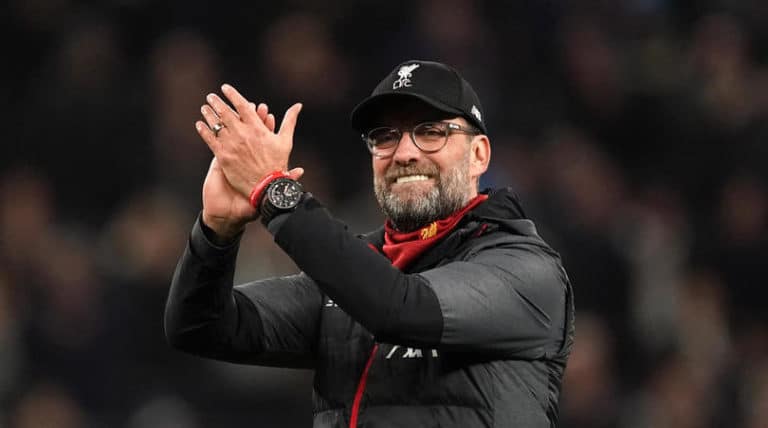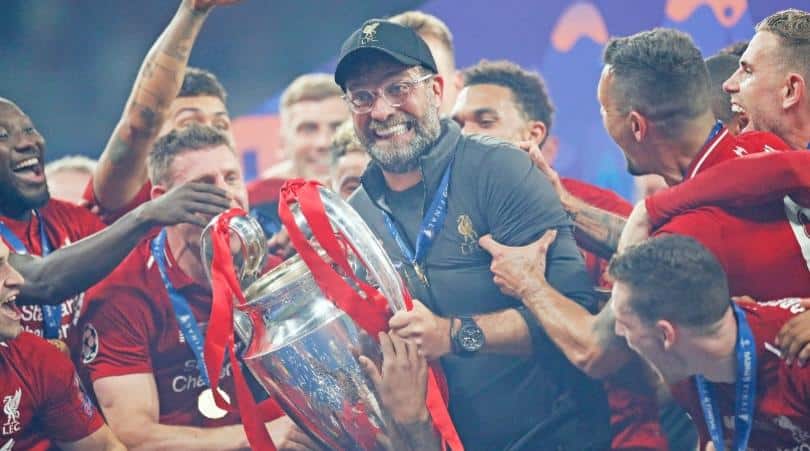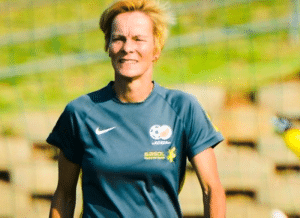Three-and-a-half-years into Jurgen Klopp’s reign, Liverpool hadn’t finished higher than fourth, and had lost three finals. But the club had a plan it was committed to.
This October international break marks two significant anniversaries at Liverpool: 10 years since Fenway Sports Group purchased the club and five years since Jurgen Klopp was appointed manager.
When FSG (then known as New England Sports Ventures) completed their takeover they vowed to “under promise and over deliver” – something that is increasingly hard to do in an extremely competitive Premier League. At the time, chairman Tom Werner was probably unaware of quite the mess they had inherited at Anfield.
Liverpool hadn’t won a trophy for four years and it was 20 years since the title had been in the Merseysiders’ trophy cabinet. But the issues were far, far greater than silverware. Managed by Roy Hodgson and with a squad bloated with massively overpaid players who were not of the quality required, it would need time and patience to get Liverpool back to the elite.
FSG had a plan but mistakes were made early on. Crucially, though, these mistakes were learned from and after five years the American owners finally got their man when Jurgen Norbert Klopp was appointed at Anfield on October 8, 2015.
Some sceptics say FSG got lucky with Klopp, and while they did, they also created their luck. Appointing Klopp showed their ambitions at Anfield and underlined their commitment to restoring the club to the pinnacle of European football.

FSG wanted Klopp earlier than when he was eventually appointed, and when they did get the opportunity to appoint the German they allowed him to implement his vision.
So often in modern football, an elite club will appoint an elite manager but either not give them the time to implement their long-term vision, or the two parties are not aligned about how to get to their eventual end goal. In Klopp and FSG, the two had a perfectly aligned vision – and patience that they both understood was required.
Remember, merely 18 months ago Klopp hadn’t won a trophy at Liverpool. His first season in charge resulted in an eighth-place finish. Defeats arrived in the League Cup final, the Europa League final, and later the Champions League final in 2018. Some clubs may have grown impatient.
While FSG didn’t blink, it works the other way in that Klopp has always stuck by the owners’ financial strategy, allowing for the club to be what FSG call “self-sufficient” – such as allowing Philippe Coutinho to depart in order to bring in Virgil van Dijk and Alisson Becker.
This summer, Klopp had high-profile targets lined up. The pandemic stopped that. But not once has he even hinted at unrest. His faith in the owners is absolute, just as is theirs in the man who has now added the club’s sixth Champions League trophy and ended the 30-year wait for the league title.
Patience and process
In an open letter to supporters back in 2012, FSG told supporters how they were “a work in progress” and that the manager had their support for the “long term”. That manager at the time was Brendan Rodgers, but the points remained exactly the same for Klopp three years later.
“We have only one driving ambition at Liverpool and that is to win the Premier League playing the kind of football our supporters want to see,” wrote FSG.
That sentence is especially pertinent now that the title has been won after having twice broken the club’s record points haul, finishing 18 points clear of their nearest challengers, and playing some of the most exciting, fluid football Kopites have ever witnessed.
But it wasn’t always like that. To get to where Liverpool are now it needed patience and vision from everybody involved. That began with Klopp’s superb communication style to supporters. The attractive, attacking football soon followed, but 50 goals conceded in the first full season in charge saw some worry that Klopp couldn’t solve the defensive issues that had plagued Liverpool in the last decade. Fewer points than the previous season (albeit only two fewer) may have sounded alarms at other clubs.
Liverpool didn’t blink, and why would they, they knew that had a world-class manager, they knew what his vision was, they understood it would take time.
Two months after finishing eighth in 2016, FSG handed Klopp and his staff new six-year contracts. It was a massive show of faith and understanding of the process from the owners. They added to that by appointing Michael Edwards to sporting director and announcing a new £50 million training ground, something Klopp pushed for during contract talks.
“It’s hard to express in words how honoured myself, Zeljko and Peter feel by the commitment shown in us by the ownership and the club in general,” said Klopp. “We are very much at the beginning of our journey, but to already have the connection we have with this very special place is incredible.”
For a manager in the modern era to receive such a show of support is extremely rare, it signalled that there was complete faith and understanding in the process. Some owners may have instead been giving public comments about how things must improve. Not FSG, they knew their patience would be rewarded.
The following season saw a return to the Champions League, but the season after (2017/18) saw no improvement in league position or points total. There was, though, a thrilling Champions League campaign that ultimately ended in defeat in Kiev.
So three-and-a-half-years into Klopp’s reign his record was sixth, eighth, fourth, fourth – and three finals lost. Plenty of owners would have called time or at least put pressure on publicly. And not just owners, but fans too. Frank Lampard will not still be at Chelsea with such a record in two years’ time. Nor will Ole Gunnar Solksjaer. Neither are likely to get the opportunity to get that far.
The average stint of a manager in the Premier League is well below three years. You’re lucky to get two seasons at most clubs if you don’t achieve an often almost-impossible target.
If and when Sean Dyche leaves Burnley, Klopp will be longest-serving manager in the Premier League. He’d also be the fourth-longest serving manager in current English professional football.
“I think that says a lot about having a plan,” says former managing director Ian Ayre. “Staying on track and recognising that, as the Beatles said, ‘it’s a long and winding road’.
“John Henry told me right at the start ‘we want to build this up to win—and keep winning’. I’d say he’s kept his word.”
The story of Klopp and FSG is an important one for football clubs, it is a story of patience being rewarded. Just don’t expect many others to repeat it.
This article originally appeared on FourFourTwoZA.com by Matt Ladson.





